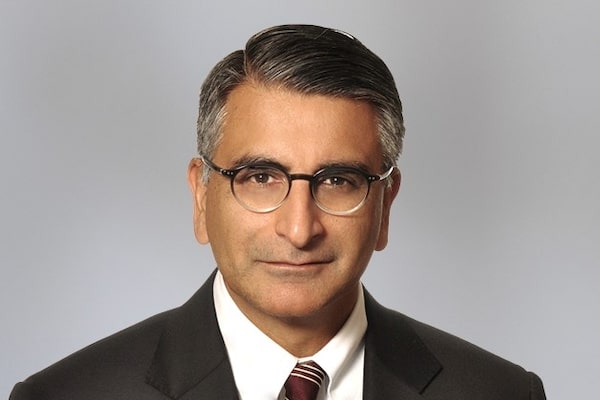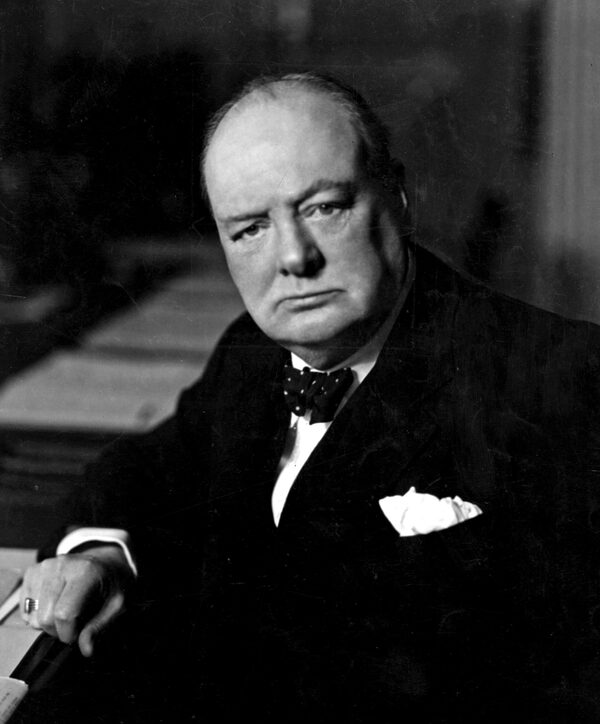Good morning,
Trudeau taps Ontario appellate judge Mahmud Jamal as Supreme Court justice
Prime Minister Justin Trudeau has nominated Mahmud Jamal, a judge on Ontario’s appellate court, to the Supreme Court.
Trudeau had been facing calls from Indigenous and minority organizations to diversify Canada’s top court. With Jamal as his pick, Trudeau has tapped a candidate who is seen as eminently qualified by his peers, thanks to his breadth of experience representing everyone from Big Tobacco to the Canadian Civil Liberties Association. Born in Kenya and raised in Britain, the bilingual nominee would succeed Rosalie Abella. Abella is set to retire on July 1, when she turns 75.
Senators and MPs will grill Jamal during a question-and-answer session. Though parliamentarians may air objections, they wouldn’t be binding on the Prime Minister. The public meeting is aimed at providing a measure of transparency and to introduce the nominee to Canadians.
Jamal would be joining a court that, like much of the rest of the world, has had to adapt due to the pandemic. Supreme Court Chief Justice Richard Wagner said the court will continue to hold virtual hearings long after the pandemic is over, if participants are agreeable. The court began holding videoconferences and hybrid sessions last year to do its part to help curb the virus.
Opinion: Canada’s Supreme Court already requires diversity. Why not racial diversity, too?

Mahmud Jamal, a judge on the Ontario Court of AppealThe Advocates' Society
This is the daily Morning Update newsletter. If you’re reading this on the web, or it was forwarded to you from someone else, you can sign up for Morning Update and more than 20 more Globe newsletters on our newsletter signup page.
Opposition censures government over failure to produce records in firing of Winnipeg lab scientists
The Conservatives, NDP and Bloc Québécois teamed up to rebuke the government over its refusal to provide unredacted documents to Parliament that could shed light on why two scientists at an infectious-disease lab in Winnipeg were let go. The motion, which took aim at the Public Health Agency of Canada (PHAC), passed 176-150, but is largely symbolic.
It’s the first time that Parliament has ever passed a motion censuring a public servant – in this case, Iain Stewart, the head of PHAC – for not co-operating with MPs. Xiangguo Qiu and her husband, Keding Cheng, were removed from the lab in July 2019 and fired in January 2021. The agency would only say that their departure had to do with a “policy breach,” citing privacy and security considerations.
Read more: Conservatives to boycott oversight body on security created by Liberals
More context: Liberals breached parliamentary privilege over documents on fired scientists, House Speaker rules
How big of an issue is vaccine shopping in Canada?
Whether on social media or among social circles, Pfizer has emerged as the preferred mRNA vaccine, even as Moderna’s product has proven to be equally safe and effective in clinical trials and real-world studies. Some Canadian pharmacy chains have seen cases where people are either hesitating or refusing to get a Moderna jab. Hesitancy doesn’t appear to be limited to just pharmacies. A handful of public-health units in Ontario have also reported instances in which people have cancelled their appointments after they found out Moderna was on the menu.
Peter Loewen, a political science professor at the University of Toronto, said vaccine shopping has started to take hold in part because of the mixed messaging from Canada’s National Advisory Committee on Immunization on the AstraZeneca vaccine. His latest survey on Canadians’ attitudes toward COVID-19 suggested that people could be “10 to 15 points less likely to accept Moderna than they are Pfizer.” Still, he said, it’s difficult to say how much such attitudes translate to people refusing a Moderna vaccine.
Read more: For AstraZeneca recipients, NACI now prefers Pfizer, Moderna as second dose
COVID-19 news today: More Ontarians can book accelerated second-dose appointments starting next week
Explainer: What you need to know about the potential link between heart inflammation and COVID-19 vaccines
The Decibel: Journalist Ethan Lou reads an essay inspired by e-mails his uncle has written from Wuhan to his children living in the United States. Lou compiled the e-mails into one personal essay about parental love and the importance of staying connected to one’s heritage despite the distance.
Subscribe to our Olympics newsletter: Going for gold under the cloud of COVID-19 makes the Tokyo Summer Games an Olympics like no other. Tokyo Olympics Update is here to help you make sense of it all, with original stories from Globe reporters in Canada and Tokyo, tracking Team Canada’s medal wins, and past Olympic moments from iconic performances.
Got a news tip that you’d like us to look into? E-mail us at tips@globeandmail.com Need to share documents securely? Reach out via SecureDrop
ALSO ON OUR RADAR
Family says Quebec’s pandemic rules for nursing homes a death sentence for mother
A man who lost his 94-year-old mother testified that Quebec’s guidelines for nursing homes were effectively death sentences for elderly people as part of the coroner’s inquest. His testimony was among several heard, with families saying they struggled to get their relatives the hospital care needed to prolong their lives.
Parliament’s Centre Block renovations to cost up to $5-billion
The rehabilitation of Centre Block – the traditional seat of the House of Commons and the Senate – is expected to add up to $5-billion, with work to continue until at least 2030.
Kingston, Ont., votes to relocate Macdonald statue to cemetery
Kingston’s city council voted to move the statue of Sir John A. Macdonald, Canada’s first prime minister, to his gravesite in Cataraqui Cemetery. The monument is currently resting at City Park, located close to Kingston’s municipal legislature.
Biden signs bill to commemorate Juneteenth as federal holiday
U.S. President Joe Biden signed legislation recognizing Juneteenth, or June 19, as a new federal holiday in commemoration of the end of slavery. The bill passed in the House of Representatives in a 415-14 vote, while it cleared the Senate with unanimous support earlier this week.
Rouhani urges Iranians to vote
With record numbers expected to boycott the presidential elections today in protest, Iranian President Hassan Rouhani urged voters to set aside their grievances and to cast their ballots. Hardline judiciary chief Ebrahim Raisi and moderate former Central Bank governor Abdolnaser Hemmati are the main contenders in a contest tightly controlled by the Guardian Council.
Rafael Nadal drops out of Wimbledon, Tokyo Olympics
Spain’s Rafael Nadal said he’s decided to withdraw from competing in Wimbledon and the Tokyo Olympics, explaining on social media he wants to avoid “any kind of excess” wear and tear on his body that would cut his career short.
MORNING MARKETS
Global markets seek direction: World stocks were stranded just below record highs on Friday, with investors left looking for direction after digesting the U.S. Federal Reserve’s more hawkish stance. Just before 6 a.m. ET, Britain’s FTSE 100 fell 0.53 per cent. Germany’s DAX slid 0.20 per cent while France’s CAC 40 edged up 0.24 per cent. Japan’s Nikkei closed down 0.19 per cent. Hong Kong’s Hang Seng gained 0.85 per cent. New York futures were steady. The Canadian dollar was trading at 80.90 US cents.
WHAT EVERYONE’S TALKING ABOUT
Kate Taylor: “Survivors’ testimony, old photos and other information about the residential schools and their assimilationist agenda can tell the story, but the real power of the Mohawk Institute may lie in the small things the children left behind.”
Robyn Urback: “... If Ms. Paul can find a way to calm the internal conflicts in her party – and if the Greens can shelve the self-sabotage until after the next election – Ms. Paul could emerge as something of a force.”
TODAY’S EDITORIAL CARTOON

Brian GableBrian Gable/The Globe and Mail
LIVING BETTER
Globe Craft Club: Roll up your sleeves for some tie-dye with @salehfamily
Frustrated by the limited selection of hijabs, and caught up in the tie-dye craze, Sana Saleh got herself a basic kit and got to work. In between weaving in educational and entertaining bits about their Muslim faith on social media, the TikTok-famous Saleh’s tie-dyed hijabs soon attracted a following. Women have reached out, asking where they can get their hands on one.
Together with her husband, Will, an aircraft mechanic, the two have started to experiment with colours, techniques and designs. He’s been able to bring his skills as an engineer – where precision is key – to bear. “Obviously, it’s a little bit different going from airplanes to hijabs and fashion, but I think it carries over well,” he says.
Now, the couple will be leading a Globe Craft event on June 22 at 7 p.m. ET, teaching us to tie-dye a T-shirt or other garment.
MOMENT IN TIME: June 18, 1940

British Prime Minister Winston Churchill delivered what many historians consider to be one of the greatest and most important speeches of all time, rallying his country to take up arms against the Nazis on behalf of the rest of the world.Walter Stoneman/Hulton Archive/Getty Images
Churchill delivers ‘finest hour’ speech
“Let us, therefore, brace ourselves to our duties – and so bear ourselves that, if the British Empire and its Commonwealth last for a thousand years, men will still say, ‘This was their finest hour.’ " It was the end of a 36-minute speech by newly minted British prime minister Winston Churchill, and perhaps his finest line. As Churchill delivered his speech to the House of Commons and the world, much of Europe was in peril. At the time, a great number of Europe’s Allied forces in the Second World War had crumbled beneath the Nazi Germany war machine. It was assumed that the Nazis would head for Britain next. Churchill delivered what many historians consider to be one of the greatest and most important speeches of all time, rallying his country to take up arms against the Nazis on behalf of the rest of the world. Using aggressive language when addressing Hitler and the Nazis, he urged his people to commit to the war effort. The speech was so effective because it was just what the English people needed to hear. The inspirational morale boost would come to be known as “Their Finest Hour.” Dylan Earis
Read today's horoscopes. Enjoy today's puzzles.
If you’d like to receive this newsletter by e-mail every weekday morning, go here to sign up. If you have any feedback, send us a note.